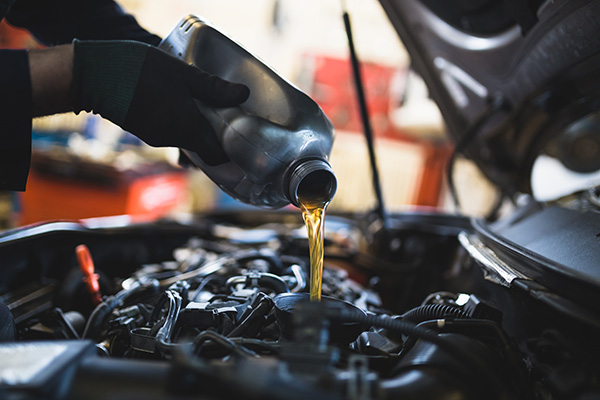
Engine oil lubricates moving parts, reduces friction, carries away heat, and helps keep the engine clean. Without enough oil, these functions start to break down quickly. Driving with low oil might not seem like a big deal at first, but it can lead to serious and expensive damage if ignored.
If you’ve recently seen a low oil warning light, noticed strange engine behavior, or just haven’t checked your oil in a while, here’s why it’s important to act fast.
Engine Oil Is More Important Than You Think
Modern engines rely on a consistent supply of clean oil to operate efficiently. Oil forms a protective barrier between metal parts that would otherwise grind together. It also reduces the internal temperature by carrying heat away from the pistons, bearings, and the crankshaft.
When oil levels drop, the protective layer thins out. That leads to increased metal-on-metal contact, more friction, and higher operating temperatures. It doesn’t take long for this added stress to cause permanent internal damage.
Symptoms of Low Oil
Driving with low oil doesn’t always cause immediate breakdown, but there are warning signs you shouldn’t ignore:
- Ticking or knocking sounds from the engine
- Oil pressure warning light on the dashboard
- A noticeable drop in engine performance
- Overheating or higher-than-normal engine temperatures
- Burning oil smell or smoke from the exhaust
If you notice any of these symptoms, it's best to stop the engine and check the oil level immediately.
What Happens Inside the Engine With Low Oil
Low oil causes damage in stages. At first, you may hear ticking noises as top-end components like lifters and valves start losing lubrication. As oil continues to run low, the crankshaft and camshaft may begin to grind against their bearings, creating heat and wear.
Eventually, the oil pump may no longer have enough oil to circulate, leading to a total loss of pressure. Critical components like pistons and rod bearings are starved of lubrication when that happens. In severe cases, the engine can seize completely.
Common Causes of Low Oil
There are several reasons your engine oil may be low:
- Oil leaks: These can develop at seals, gaskets, or around the oil filter. Even slow leaks can lead to a significant loss over time.
- Oil consumption: Some engines burn oil as they age, especially under high loads or if valve seals and piston rings are worn.
- Extended oil change intervals: Skipping oil changes or going too long between services can reduce the total oil volume and degrade its quality.
- Neglected maintenance: Failing to check your oil regularly can let a small problem grow into a big one.
Catching these issues early with regular inspections can prevent low oil from becoming a serious threat.
Can Topping Off the Oil Fix the Problem?
Adding oil can help in the short term, especially if you're on the road and can't get to a repair shop right away. However, simply topping off the oil doesn’t address the underlying cause. If your engine continues to lose oil, it needs a full inspection to find out why.
In some cases, the oil may be leaking or burning faster than you realize. And if damage has already occurred, adding more oil won't undo it.
When Engine Damage Becomes Permanent
If you’ve been driving for an extended time with low oil, there’s a real risk that internal engine parts have been damaged. Worn bearings, scratched cylinder walls, and warped components can lead to poor performance, oil burning, and eventually a complete engine failure.
Rebuilding or replacing an engine is one of the most expensive repairs a vehicle can need. The best way to avoid it is to take action early.
Gil’s Garage Inc of Half Moon – Preventative Maintenance in Clifton Park, NY
At Gil’s Garage in Clifton Park, we help drivers stay ahead of costly engine problems with routine maintenance and timely oil services. If your oil light is on, your engine is running strangely, or it’s been too long since your last oil change, come see us. We’ll inspect your system, check for leaks, and make sure your engine is protected.
Don’t wait until it’s too late—your engine’s health depends on it.